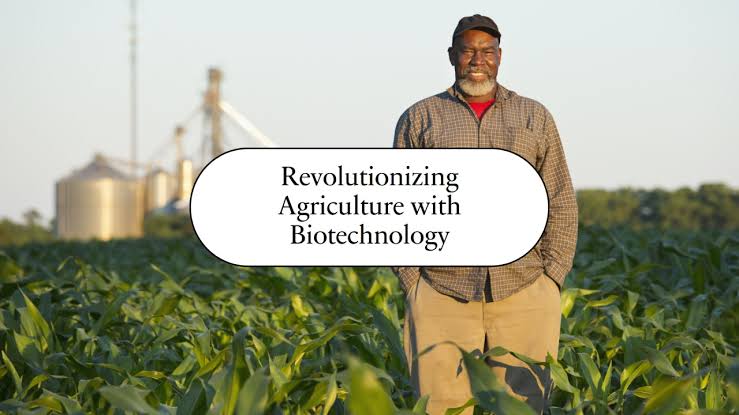Africa is home to 60% of the world’s arable land, yet the continent faces significant challenges in feeding its growing population. Agricultural productivity in Africa is low compared to other regions, and the sector faces numerous constraints, including limited access to markets, inadequate infrastructure, and environmental degradation. Biotechnology has the potential to play a significant role in promoting agricultural development in Africa, addressing some of the sector’s most pressing challenges.
Challenges facing African Agriculture
African agriculture faces numerous challenges, including:
1. Low Productivity: Agricultural productivity in Africa is low compared to other regions, resulting in reduced yields and incomes for farmers.
2. Limited Access to Markets: Many African farmers lack access to markets, making it difficult for them to sell their produce and generate income.
3. Inadequate Infrastructure: Africa’s rural infrastructure, including roads, storage facilities, and irrigation systems, is often inadequate, making it difficult for farmers to produce and market their crops.
4. Environmental Degradation: African agriculture is vulnerable to environmental degradation, including soil erosion, deforestation, and climate change.
The Role of Biotechnology in African Agriculture
Biotechnology has the potential to address some of the most pressing challenges facing African agriculture. Some of the ways biotechnology can contribute to agricultural development in Africa include:
1. Improved Crop Yields: Biotechnology can be used to develop crops that are more resilient to pests and diseases, and that can thrive in challenging environmental conditions.
2. Drought Tolerance: Biotechnology can be used to develop crops that are more drought-tolerant, reducing the impact of drought on agricultural productivity.
3. Pest and Disease Resistance: Biotechnology can be used to develop crops that are resistant to pests and diseases, reducing the need for pesticides and other chemicals.
4. Nutritionally Enhanced Crops: Biotechnology can be used to develop crops that are nutritionally enhanced, addressing micronutrient deficiencies that are prevalent in many African countries.
Examples of Biotechnology in African Agriculture
Several examples of biotechnology in African agriculture demonstrate its potential to promote agricultural development:
1. Bt Cotton in South Africa: The introduction of Bt cotton in South Africa has resulted in significant increases in cotton yields, reducing the need for pesticides and improving the livelihoods of smallholder farmers.
2. Drought-Tolerant Maize in Kenya: Researchers in Kenya have developed drought-tolerant maize using biotechnology, which has the potential to improve maize yields and reduce the impact of drought on smallholder farmers.
3. Virus-Resistant Cassava in Nigeria: Researchers in Nigeria have developed virus-resistant cassava using biotechnology, which has the potential to improve cassava yields and reduce the impact of disease on smallholder farmers.
Challenges and Opportunities
While biotechnology has the potential to promote agricultural development in Africa, several challenges and opportunities must be addressed:
1. Regulatory Frameworks: Many African countries lack regulatory frameworks to govern the development and deployment of biotechnology products.
2. Public Awareness and Acceptance: There is often limited public awareness and acceptance of biotechnology products in Africa, which can hinder their adoption.
3. Capacity Building: African countries require capacity building in biotechnology research and development, as well as in regulatory frameworks and biosafety protocols.
4. Private Sector Investment: The private sector has a critical role to play in promoting biotechnology in African agriculture, through investment in research and development, and through the deployment of biotechnology products.
Conclusion
Biotechnology has the potential to play a significant role in promoting agricultural development in Africa, addressing some of the sector’s most pressing challenges. While several challenges and opportunities must be addressed, the potential benefits of biotechnology in African agriculture are significant. With the right regulatory frameworks, public awareness and acceptance, capacity building, and private sector investment, biotechnology can contribute to improved crop yields, drought tolerance, pest and disease resistance, and nutritionally enhanced crops, ultimately improving the livelihoods of smallholder farmers and promoting food security in Africa.

